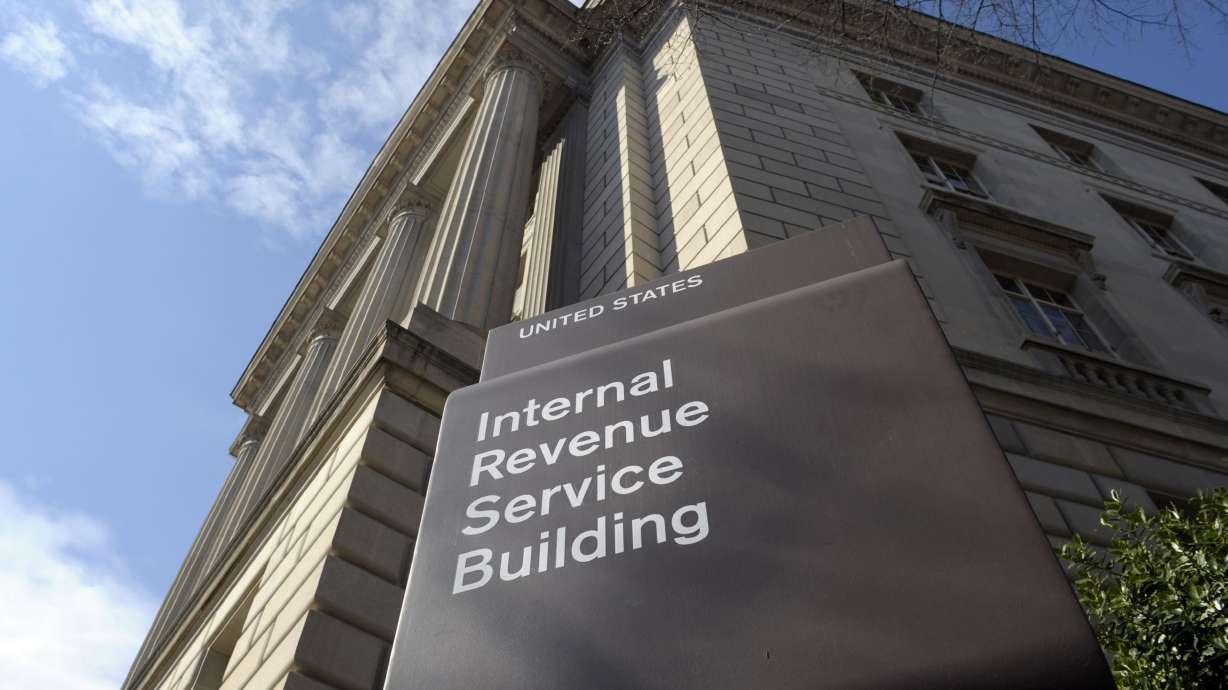Estimated read time: 4-5 minutes
This archived news story is available only for your personal, non-commercial use. Information in the story may be outdated or superseded by additional information. Reading or replaying the story in its archived form does not constitute a republication of the story.
WASHINGTON — It all had to end sometime.
A slew of pandemic-era government subsidies, including stimulus checks, tax breaks and expanded credits, timed-out in 2021. And the adjustment could lead to refund shock, or balances due, for many U.S. taxpayers this time around as the 2022 filing window opened earlier this week.
Tax brackets and standard deductions for 2022 have also been inflation-adjusted, though the changes are nominal. The IRS says it will continue to pay close attention to filers' reporting on cryptocurrency investments and transactions, though it has changed its previous term "virtual currencies" to "digital assets."
Highlights of changes that could impact taxpayer liabilities for the 2022 tax year include:
- Pandemic relief for households making up to $150,000 a year included a temporary increase in the Child Tax Credit from $2,000 per child to $3,000 per child for children older than 6, and from $2,000 to $3,600 for children younger than 6. Those bumps return to their pre-pandemic levels of $2,000 per child for the 2022 tax year.
- Many U.S. taxpayers received their third and final stimulus benefit of $1,400 in 2021. While the subsidy came in the form of a check for some taxpayers, others received a "recovery rebate credit" which helped boost refund checks last year. That benefit will not be in play this cycle.
- The Earned Income Tax Credit was significantly expanded amid the worst of COVID-19 conditions. According to a report from The Hill, taxpayers claiming the EITC with no children who received roughly $1,500 in 2021 will get around $500 in 2022.
"That credit provided a wage subsidy to lower income earners that phased in with earned income. So when they got a dollar of income, that was matched with extra tax credit," tax analyst Erica York of the Tax Foundation said in an interview with The Hill.
- The threshold for claiming the Child Care and Dependent Tax Break has returned to its pre-pandemic level, as has the size of the qualified tax credits.
In 2021, the Child Care and Dependent Tax Credit received temporary expansions, allowing those who made $125,000 or less to deduct between 20% to 50% of $4,000 (or $8,000 for parents with more than one child) in qualifying child care expenses. It was also refundable, per CNET.
For 2022, that tax break has also reverted back to what it was in 2020. Now, parents with one child can only claim up to 35% of a maximum of $3,000 in qualifying expenses, for a maximum amount of $1,050. Parents with more than one child are eligible for up 35% of up to $6,000 in qualifying expenses, for a maximum amount of $2,100.
- The biggest difference is the income qualification. To receive that credit in full in 2022, you must have made $15,000 or less — a steep drop from 2021's $125,000 income threshold — though households earning up to $438,000 will receive at least partial credit.
- The IRS defines digital assets as "a digital representation of value which is recorded on a cryptographically secured, distributed ledger." Those assets, according to the IRS, include convertible virtual currency and cryptocurrency; stablecoins; and nonfungible tokens. Everyone who files Form 1040, Form 1040-SR or Form 1040-NR must check one box, answering either "yes" or "no" to the digital asset question. The IRS says the question must be answered by all taxpayers, not just those who engaged in a transaction involving digital assets in 2022.
- According to a CNET report, whenever you sell or trade your cryptocurrency or purchase an item with crypto, you trigger a taxable event. Currently, crypto is taxed like property, making it subject to short- or long-term capital gains taxes. That also means you can report any crypto losses to help offset any gains. Since 2022 saw a drastic drop in the value of cryptocurrencies like bitcoin and ethereum, if you sold or traded your crypto at a loss, you may be able to reduce your tax bill by reporting your capital loss. The same goes for NFTs.
Taxpayers have until April 18 to file their taxes this year, but some taxpayers living overseas and disaster victims may have later filing deadlines, according to the IRS. Alabama, California and Georgia storm victims now have until May 15 to file various federal individual and business tax returns and make tax payments.
Filing electronically is the best method to expedite processing time and reduce the wait for a refund check/deposit, if you've qualified for money back. The IRS said taxpayers who electronically file a tax return with no issues and choose direct deposit should still receive their refund within 21 days of the date they file — similar to previous years.
But the tax collection agency also warned that, due to the retirement of pandemic-related tax perks, many filers can expect lower refunds from their 2022 filings.
"Due to tax law changes such as the elimination of the Advance Child Tax Credit and no Recovery Rebate Credit this year to claim pandemic-related stimulus payments, many taxpayers may find their refunds somewhat lower this year," the IRS wrote in a bulletin released earlier this week.
Correction: An earlier version incorrectly cited the start of an IRS requirement for third-party payment processors to begin submitting reports of digital payments totaling $600 or more in the 2022 tax year. That program has been delayed for a year. The reporting threshold for payment platforms, and individuals, will remain at $20,000 until the 2023 tax year.









